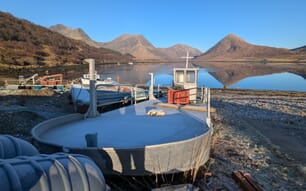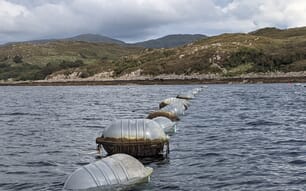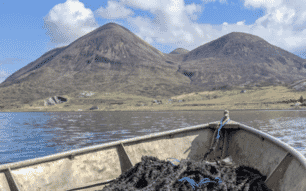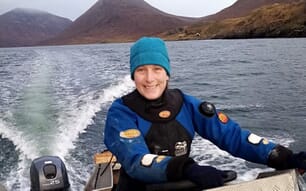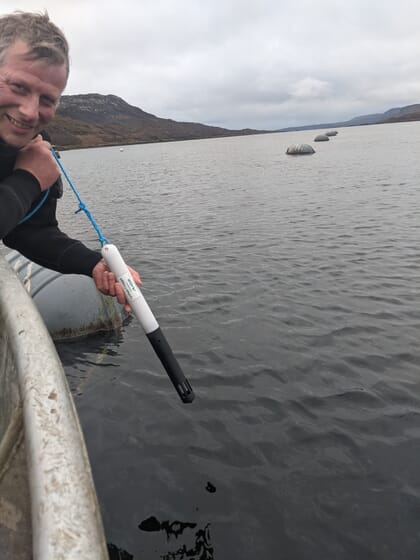
The company has deployed chlorophyll loggers to gather year-round data on the plankton levels and better understand the forces driving blue mussel populations in the area © Isle of Skye Mussel Co
Many people have asked what made us take on a mussel farm as a business. My background and practical experience have all been in fisheries, so why change phylum from what you know?
However, working for so long in commercial fisheries and marine conservation, I was often asked about the best ways to tackle overfishing and what alternatives exist or “what’s a sustainable protein source that we can feel good about eating”? After studying sustainable aquaculture and learning all about a marine activity in which my knowledge had been very limited, mussel farming came out as a clear winner for me. It wasn’t just the reason that as a small-scale business owner, we’d never have the capital to start a fish farm… or that there happened to be a mussel farm for sale on the beautiful Isle of Skye! It was the environmental ethos of farming mussels that was the real draw.
With an increasing global population, demand for protein is ever-increasing, and people are becoming more aware of the negative impacts that their food choices can have on the environment. Following the recent COP26 climate summit in Glasgow earlier this month, I hope that the focus is going to turn more and more to sustainable food sources that also meet human nutritional needs. This should be music to mussel farmers’ ears – we have the answer hanging in the ocean, we just need to get the message out there.
Mussel farming is low impact, with no requirement for chemical treatments, use of antibiotics or input of feed. They don’t take up any of the limited space left on land, they don’t require freshwater in their farming, the greenhouse gas emissions during their production are negligible. Overall, their negative impacts on the environment or the climate are extremely minimal, making them a sustainable animal protein option that could help to provide healthy diets without impacting the planet.
But that’s not all, mussels are also great cleaners. Filtering around 25 litres of sea water per day, mussels can improve the quality and clarity of water in coastal areas, including reducing eutrophication. Another benefit is that the mussel lines hanging in the water (600-800 droppers per line), can act as a means of wave energy dissipation, thereby providing protection from coastal erosion.
A plethora of dropper ropes, hanging six or more metres down from the sea surface, covered in mussels, are also great biodiversity havens. Their benefits are threefold, firstly acting as refuge areas.
In my numerous dives around our sites, I have seen lumpfish using the lines as shelters, pipefish which blend with the seaweeds that are attached on the lines, shoals of mackerel and pollock that dart among the dropper ropes. The mussel sites are also home to many invertebrates, diving I have seen some of the true beauties of Scottish marine life hidden within the site; plumose and snakelocks anemones cover the mooring ropes; tiny blue-rayed limpets stuck onto seaweed on the lines; decorator crabs, edible urchins; and – if you look closely enough – several exquisite nudibranchs (sea slugs).
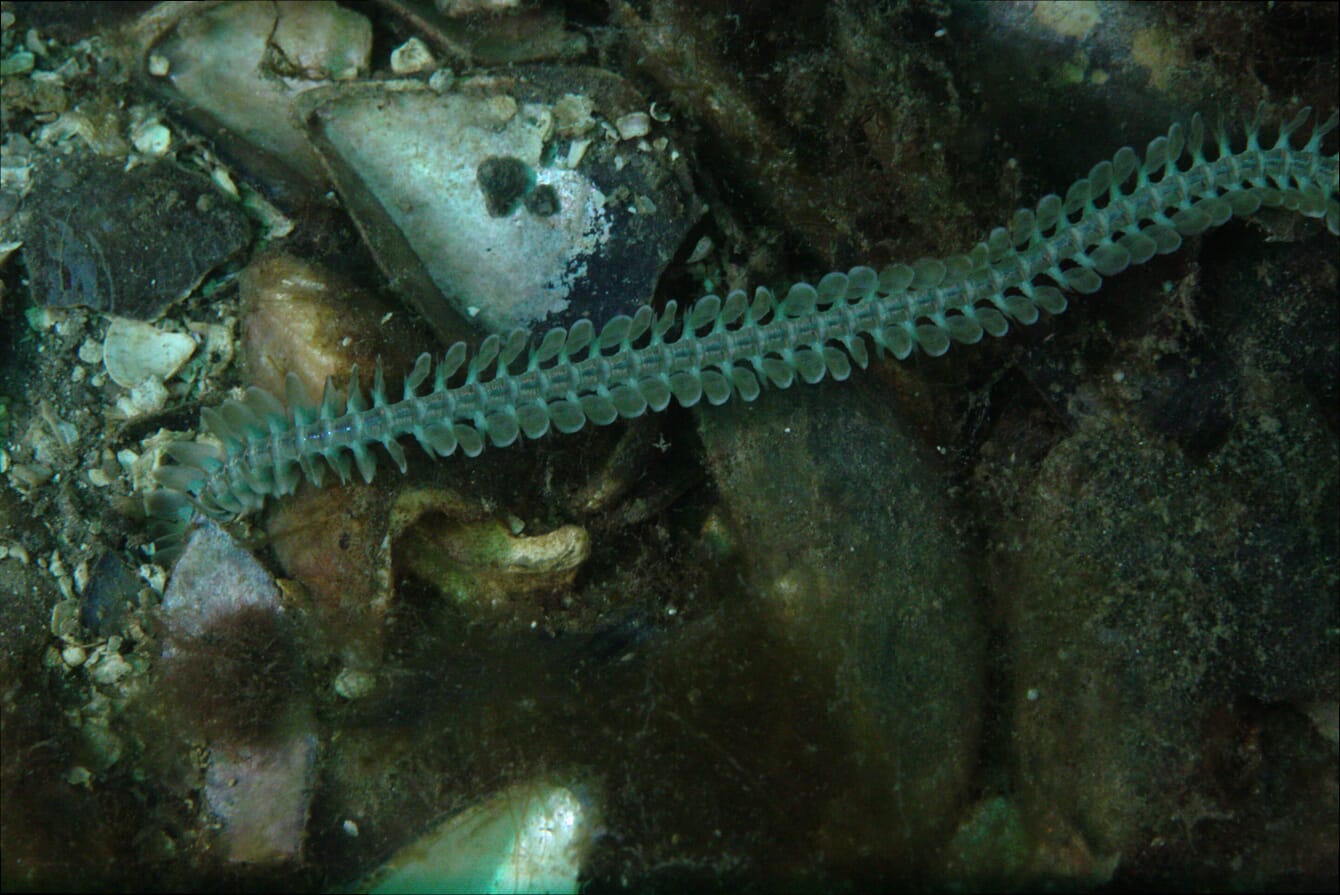
© Isle of Skye Mussel Co
Secondly the site also provides a feed source for life in the surrounding area, and under the ropes I observed edible crabs and several species of starfish (including the large seven-armed starfish) all of which will feed on any mussels that drop off the lines during storms or as a result of natural thinning. Shell debris on the seabed can also create additional habitat in which smaller invertebrates can live.
Thirdly, the reproductive potential of mussel farms helps increase the wild population of bivalves when they release their spat into the water, and the ropes and other structures also provide spawning habitat for other marine creatures. A recent scientific paper provides evidence of mussel farms increasing species abundance by 3.6 times and diversity by 1.1 times. With my love of marine biology, I have started to keep record of all the species I see at the site so I can document the species benefiting from the presence of the site. Having a micro-mollusc (tiny shells) specialist as a friend has also meant I already have records of over 62 species of molluscs alone found at our sites. Photographing the biodiversity helps document the different animals and plants that use the site and how this may change over time as the sites become established, and it also gives me an excuse to enjoy the beauty of the Scottish sea lochs, the peace of the underwater world and, of course, escape the mussel graft for an hour.
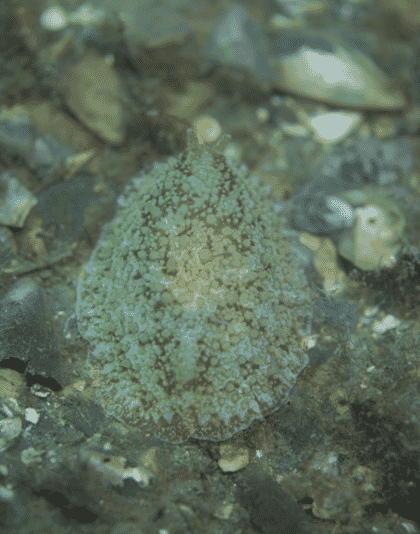
© Isle of Skye Mussel Co
The benefits of mussels stretch beyond just the environment. They are also incredibly nutritious and having bought three cook books entirely dedicated to mussels we are slowly working our way through an extremely wide range of mussel dishes. Not only are they a source of high-quality protein, but are also a great way to get your recommended doses of omega-3 fatty acid, vitamins (such as B-12 – good for the immune system) and minerals (eg iron – good for cognitive function and oxygen transport in the blood; zinc – good for healthy hair, skin and bones; and selenium – good for thyroid function). This is information that, as mussel farmers, we need to highlight more to entice consumers to try or increase their mussel consumption.
For us sustainability is at the core of our business ethos and that means looking at the practises we use in production to ensure they are as green as possible. Even small changes have an impact when you consider the scale. At the bottom of each dropper there is a small concrete weight – making a total of 2,400-3,200 weights for the four lines we aim to get out each year. Historically, these weights were made using plastic cups as moulds, which remained on the concrete weight. For a negligible cost difference, we have just ordered and received 2,400 biodegradable recycled paper cups to form our moulds for the coming year – meaning no more plastic cups at Isle of Skye Mussel Company.
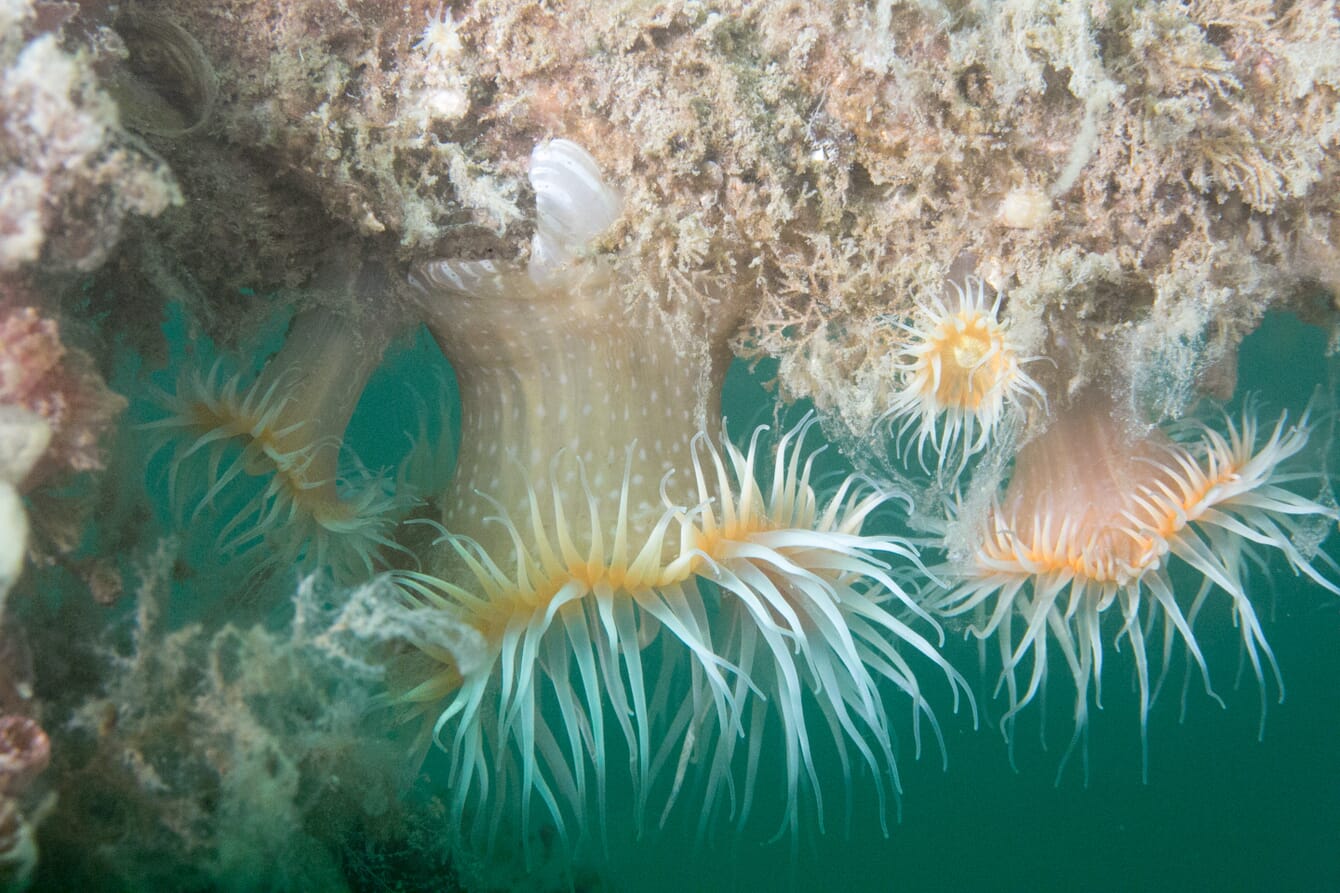
© Isle of Skye Mussel Co
Ensuring your farm is as sustainable as possible also involves gathering data and feeding them back to research institutions and Government. Collecting and analysing environmental data from the site and biological data from the mussels increases knowledge and awareness of marine-based food production for policy makers and food chain managers.
The data feed into our business management decisions, as well as recording any impacts on the environment of our mussels. Linking up with NatureScot we are deploying two of their chlorophyll loggers on our site to gather year-round data on the plankton levels, to better understand the forces driving blue mussel populations in the area.
Every few weeks we are also taking samples of mussels off the lines, measuring and weighing them to create a growth curve. Comparing this between two of our sites will help with future decisions on how many lines we set, the types of line we use and planning our harvesting times.
Conversations are ongoing too with Stirling University and SAIC on potential collaborations for other scientific trials that may offer potential benefits to the aquaculture industry. The Association of Scottish Shellfish Growers (ASSG), which we are a member of, is a source of important current learnings, and presented two recent talks at the AGM.
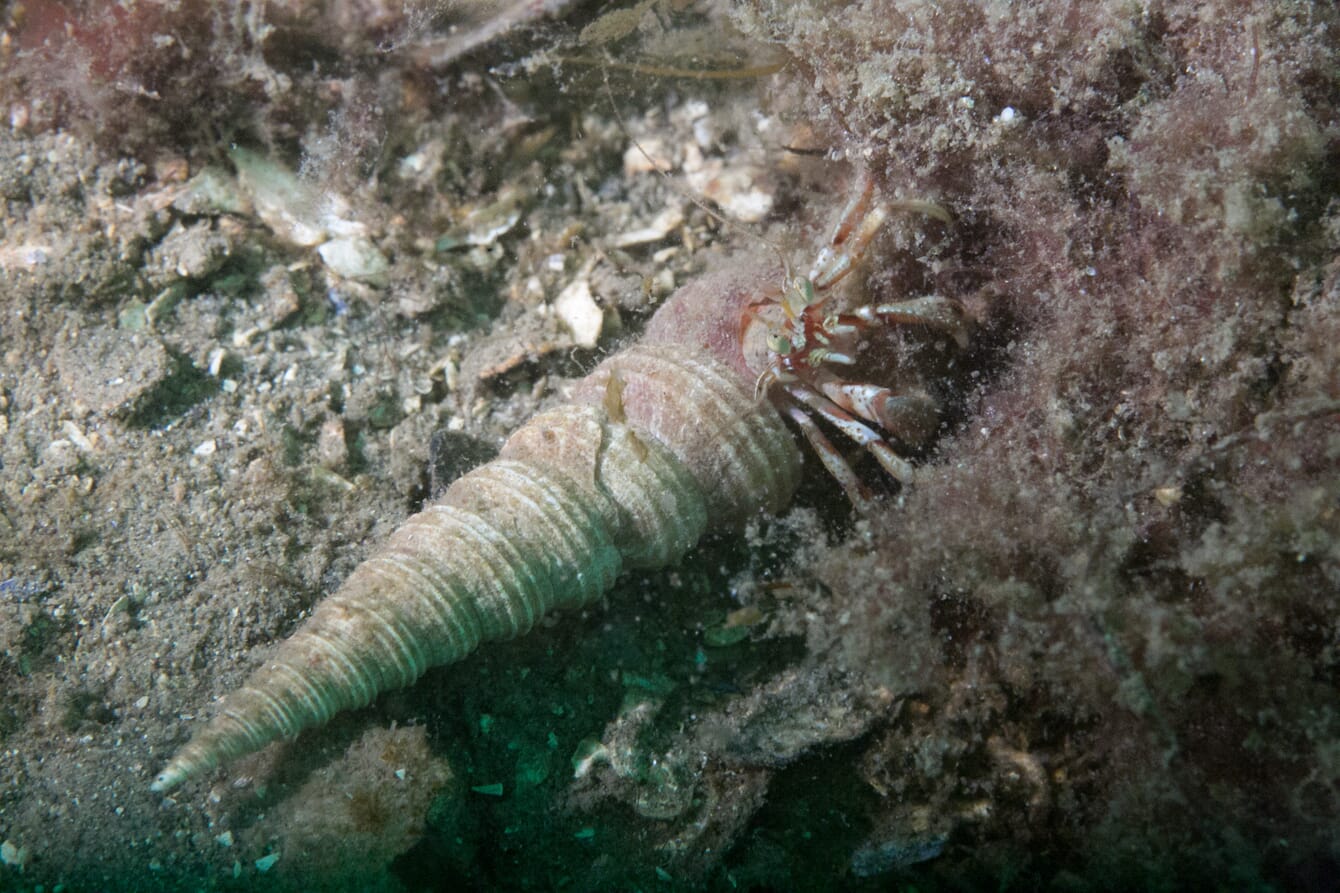
© Isle of Skye Mussel Co
The first detailed the ecosystem services (natural capital) of shellfish production (filtering water, creating habitat, slowing wave energy and carbon sequestration) and the second, by a PhD candidate conducting lifecycle assessments – ie the impact on the environment, carbon footprint, fresh water usage, energy consumption during the cultivation process for the whole lifecycle of the mussel from seed to product. There is still so much to be learnt about this amazing bivalve, but what is known for sure is that its cultivation has great benefits for the environment and for the health of those who add them to their dinner menus. We are proud to be farming this sustainable protein source, we now just need to perfect our farming techniques – there is so much still to learn.
Follow us on Instagram or Facebook – Isleofskyemusselcompany for more mussel facts and progress on the farm

